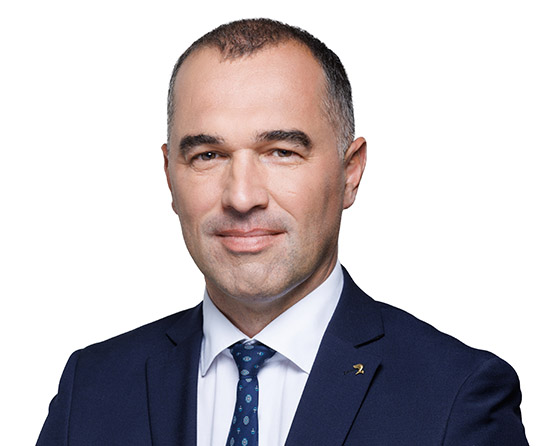
AI Profiling: Timo Suslov
Agenda items: 9
300/300 profiling (100.0%)
Total Speeches: 28
Analysis Period: 2024-02-22 - 2025-06-12
Political Position
The political position is strongly focused on policy and procedure, having repeatedly aimed at rejecting draft legislation. In doing so, it emphasizes consistency with the standpoints of the Government of the Republic, as well as legal proportionality and the sufficiency of existing legislation. Key issues include ensuring the organization of Riigikogu (Parliament) work and the quality of legislation, alongside opposition to the introduction of new punitive measures. In the later period (2025), strong support for reducing bureaucracy, improving business competitiveness, and backing the defense industry dominates. This points to a clear, results-oriented focus on boosting economic efficiency. The standpoints are predominantly pragmatic, relying on legal analysis and consensus within the leading committees.
Topic Expertise
The politician's expertise is exceptionally strong in the field of legislative procedure and the internal organization of the Riigikogu (Estonian Parliament); as a representative of the Constitutional Committee, they are intimately familiar with the history of draft legislation, the dates of procedural decisions, and voting results. They demonstrate authority by accurately referencing both the observations made by the constitutional oversight body (the Chancellor of Justice) and the positions held by the relevant ministries (the Ministries of Justice, Defense, and Finance). Their substantive knowledge encompasses complex legal fields, such as the exceptional granting of citizenship (including familiarity with statistics and historical documents), local government legislation, and regulations related to the protection of state secrets. Their expertise is evident in their ability to distinguish procedural nuances and clarify constitutional accountability measures.
Rhetorical Style
The politician’s rhetorical style is consistently highly formal, neutral, and strictly procedural, reflecting his role as the commission’s rapporteur. Throughout the entire period under review, he relies exclusively on logical and fact-based appeals, citing legal provisions and procedural decisions, while systematically avoiding emotional or personal viewpoints. His discourse is always logically structured, informative, and concise, focusing solely on the communication of substantive information.
Activity Patterns
The politician's operational pattern is consistently tied to managing the legislative process within the Riigikogu, regularly serving as the representative and rapporteur for the lead committee—the Constitutional Committee—before the plenary assembly. His activity is systematic and centers on detailed procedural reporting, through which he regularly provides summaries of decisions reached during committee sessions and updates on the progress of bill readings. This pattern demonstrates a strong focus on internal parliamentary procedure, encompassing close communication with ministries and the coordination of legislative efforts.
Opposition Stance
The politician’s opposition is primarily directed against bills initiated by the opposition parties (EKRE, Isamaa), with the criticism consistently being multifaceted, focusing both on procedural shortcomings and policy-based arguments (disproportionality, burdening local governments). The resistance is generally firm, relying on committee recommendations for rejection and negative positions from ministries, while avoiding personal attacks and preferring philosophical and legal argumentation. Although the opposition is often intense when demanding the rejection of bills, the profile also reveals periods where confrontation is absent and the emphasis is instead placed on achieving consensus.
Collaboration Style
The style of cooperation is clearly institutional and committee-centric, dominated by a consensus-based approach in most procedural decisions, particularly when placing draft legislation on the agenda and appointing representatives. The politician consistently supports the committee majority's position, even if achieved through a vote, and maintains smooth procedural cooperation with colleagues. The profile is characterized by extensive and successful collaboration with ministries (including the Ministries of Justice, Finance, and Defense) and legal authorities (the Chancellor of Justice), demonstrating openness to compromise and a willingness to integrate substantive proposals to achieve broad-based support.
Regional Focus
The politician’s regional focus is predominantly national and sector-specific, concentrating on the competitiveness of Estonian enterprises, public procurements, and the defense industry. Local topics emerged only on one occasion, when emphasis was placed on the need to protect local governments (LGs) from binding obligations and unforeseen problems imposed by the central government. This points more toward defending the autonomy of LGs than to proactive regional development or highlighting specific regional industries.
Economic Views
The politician's economic views are largely pro-business, stressing that economic growth can be achieved through the extensive simplification of bureaucracy and regulations, particularly concerning permit applications and public procurement. While the primary focus remains on enhancing the competitiveness of Estonian companies, including support for the defense industry, discussions on tax policy have also brought to the forefront the need for social justice and the protection of vulnerable groups. Overall, the politician supports deregulation and pro-growth policies but has simultaneously demonstrated a willingness to implement fiscal measures, such as supporting an increase in state fees.
Social Issues
The profile of social issues is primarily regulatory and specific, focusing on the impact of specific legislation and the regulation of exceptions. The main social topics concern the exceptional granting of Estonian citizenship, particularly the consideration of the proportionality of restrictions imposed on individuals with criminal records, advocating for a cautious approach. Furthermore, attention has been drawn to social inequality arising from the implementation of new tax laws (such as the motor vehicle tax) affecting disabled persons and large families, recognizing the necessity of a legal remedy. Although direct social issues are few, the treatment of these topics is closely intertwined with the need for security and legal regulation.
Legislative Focus
The politician's legislative activity is predominantly procedural, where he consistently acts as the representative of the leading committee to report procedural decisions and ensure the correct progression of bills through the Riigikogu. His focus is split into two areas: firstly, he has repeatedly submitted proposals for the rejection of bills concerning constitutional issues (such as exceptions to citizenship and the referendum law) and amendments to the Riigikogu’s internal rules. Secondly, in the spring of 2025, clear support emerged for initiatives aimed at reducing bureaucracy, simplifying the business environment, and supporting the defense industry.